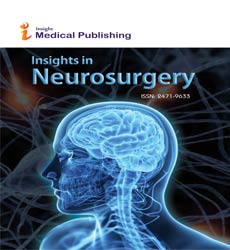SCN2A related neurological disorders
Hamada zehry
Lecture of Neurology, Horus University, Egypt
Received Date: 2022-03-14 | Accepted Date: 2022-03-20 | Published Date: 2022-03-25Abstract
SCN2A related disorders are a group of epilepsy and neurodevelopmental disorders, each caused by changes (mutations) in a gene called SCN2A.
SCN2A mutations may be inherited from a parent or may occur for the first time in a child with an SCN2A related disorder (a de novo mutation).
Signs and symptoms depend on the specific condition and severity in each person. Most children with SCN2A mutations will have seizures that start in the first few weeks of life. Other symptoms of an SCN2A related disorder may include developmental delay, movement disorders, and/or poor muscle tone (hypotonia).
Treatment depends on symptoms and severity, but often includes antiepileptic drugs (AEDs). Unfortunately, in many cases, seizures associated with SCN2A related disorders cannot be controlled, even with the use of multiple AEDs. However, for infants who begin to have seizures within 3 months of birth, nonselective sodium channel blockers (such as phenytoin and carbamazepine) are more effective. Treatment for global developmental delay, ASD, and other associated signs and symptoms follow standard management recommendations
Open Access Journals
- Aquaculture & Veterinary Science
- Chemistry & Chemical Sciences
- Clinical Sciences
- Engineering
- General Science
- Genetics & Molecular Biology
- Health Care & Nursing
- Immunology & Microbiology
- Materials Science
- Mathematics & Physics
- Medical Sciences
- Neurology & Psychiatry
- Oncology & Cancer Science
- Pharmaceutical Sciences
